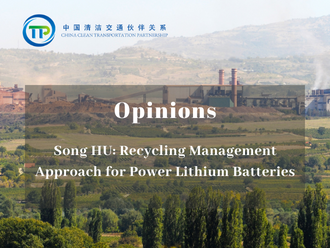
Song HU, director engineer of R&D at CATARC, has noted that China has a relatively comprehensive power battery recycling management policy system in place, and a regular working mechanism has been established. This provides a strong policy guarantee for power battery recycling.
More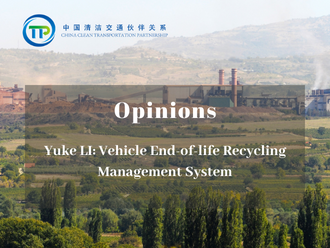
Yuke LI, the deputy chief engineer of CATARC-AIPRS, notes that China has essentially established a policy and standard system to regulate the development of the end-of-life motor vehicle recycling industry. He believes that with the entry of a large number of backbone enterprises into the automotive end-of-life recycling industry, the industry is poised to enter a period of upgrading and optimization.
More
Honglian WEI, Chief Engineer of the Solid Waste and Chemicals Management Center at the Ministry of Ecology and Environment, mentioned that the recycling of retired power lithium batteries has two main directions: secondary use and recycling. She also emphasized that the dismantling and recycling process of waste power lithium batteries pose environmental risks that need to be given high priority.
More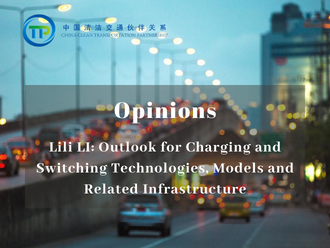
Lili LI, Chief Strategy Officer and Deputy Director of the Institute of New Energy Vehicle Energy Storage, Sichuan Energy Internet Research Institute at Tsinghua University, highlighted that charging facilities would play a crucial role in providing flexibility to the new power system. She suggested four policy recommendations tailored to different markets and facility objects: accelerating the popularization of charging facilities, comprehensive enhancement of charging infrastructure, pilot breakthrough of charging technology, and consolidation of charging infrastructure foundation.
More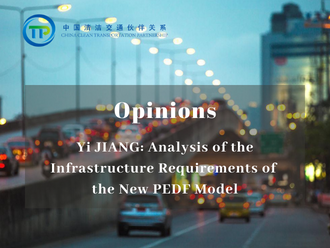
Yi JIANG, an Academician from the Chinese Academy of Engineering and professor of the School of Architecture at Tsinghua University, has stated that electric vehicles have a significant role to play as energy storage resources in the future. He suggested that it is crucial to develop and build charging piles in an orderly and moderate way in advance, as it is an essential element of China's new infrastructure.
More
Xiaoshi LIU, Deputy Secretary-General of China EV 100, believes that China's automotive industry will remain in the era of power diversification technology paths for a long time and thus requires adjustments in its energy infrastructure construction planning. Key nodes such as oil-to-electricity and gas-to-electricity conversions need to be prioritized to support the development of the industry.
More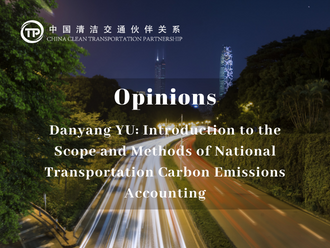
In the view of Danyang YU, Associate Researcher at the Science and Information Center of the Transportation Research Institute of the Ministry of Transport, the national transportation carbon emissions accounting scope is mainly based on transportation vehicles, with the accounting basis including both commercial and non-commercial aspects. She suggests that national, industry, and local accounting results should be consistent. They should also accurately understanding the differences between national macro accounting, enterprise micro accounting, and regional accounting.
More
Xiaoyi LI, engineer from the Planning and Research Institute of the Ministry of Transport, pointed out that the main difference between the IPCC and the greenhouse gas accounting boundaries in the Chinese transportation sector is whether international aviation and shipping are included. She also mentioned that non-commercial vehicles and accounting boundaries are the difficulties and key points in the practice of local carbon emissions accounting. She suggested that a unified carbon emission accounting method system should be formulated at the national level as soon as possible, and a cross-departmental carbon emission basic database should be established.
More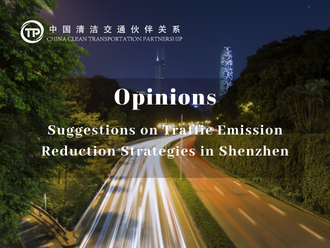
Shu CHEN, chief engineer at the Urban Transportation Research Institute/Intelligent Research Institute of the Urban Transportation Planning and Design Institute of Shenzhen, has proposed the following strategy suggestions for Shenzhen's transportation emission reduction: vigorously develop clean transportation energy, promote the low-carbon transformation of freight vehicles, increase the proportion of rail and waterway transportation, enhance the attractiveness of green travel, encourage green travel, advocate for a "voluntary + mandatory" carbon reduction model through flexible interactions, improve traffic congestion, and maintain low-carbon transportation operating speeds, among others.
More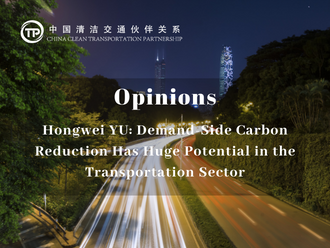
Hongwei YU, associate professor at the Wuhan University Carbon Neutrality Research Center and the Institute of Quality Development Strategy, believes that demand-side carbon reduction has huge potential in the transportation sector. At the same time, he suggests that in addition to reducing emissions from production, mechanisms for reducing emissions on the consumption side should be introduced in a timely manner to help achieve carbon neutrality goals.
MoreCCTP is a non-governmental, non-profit, and voluntary platform, focusing on policy and technological innovations, summarizing and disseminating national and global practices for a net-zero transportation sector.